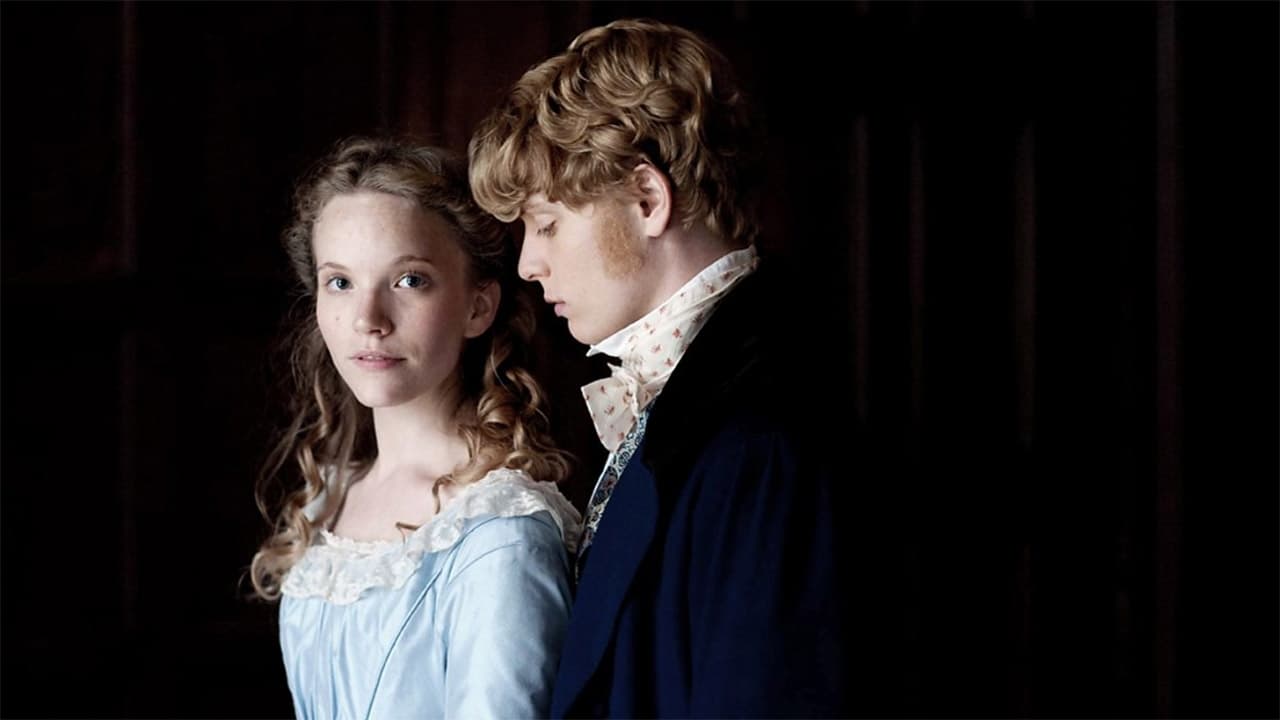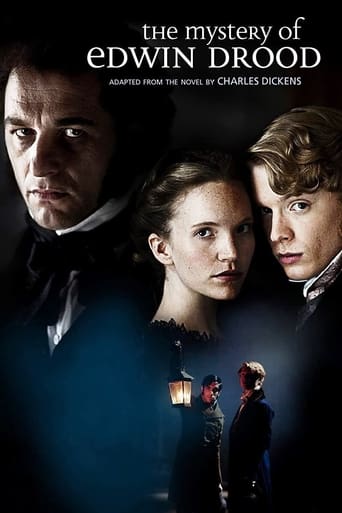

Self-important, over-dramatic, uninspired.
... View MoreGripping story with well-crafted characters
... View MoreGreat example of an old-fashioned, pure-at-heart escapist event movie that doesn't pretend to be anything that it's not and has boat loads of fun being its own ludicrous self.
... View MoreExactly the movie you think it is, but not the movie you want it to be.
... View More"The Mystery of Edwin Drood" was Dickens's last novel, famous for being left unfinished at his death, so producing a film adaptation is always going to be a speculative undertaking, as nobody is quite sure how Dickens intended it to end, although there are a number of theories. The title character is a young man from the cathedral city of Cloisterham, a thinly-disguised version of Rochester. (The film was shot on location in that city). The plot revolves around the strange triangular relationship which develops between Edwin, his fiancée Rosa Bud, and his uncle John Jasper. Edwin has been engaged to Rosa since they were both children, as a result of provisions in their father's wills, but neither seems to have much passion for the other. Jasper, the opium-addicted choirmaster of Cloisterham Cathedral, is secretly in love with Rosa, although she does not return his love. A further development comes with the arrival in Cloisterham of the twins Neville and Helena Landless from Ceylon. In this adaptation they are of mixed race, although their racial origins are not indicated in the original book. Neville finds himself attracted to Rosa, and he and Edwin fall out with one another. Another important character is the clergyman Septimus Crisparkle. The "mystery" to which Dickens alludes in his title is the sudden disappearance of Edwin. It is presumed that he has been murdered, although no body is ever found. The novel in its unfinished state offers no definitive solution to the mystery, so the writers of this version have had to come up with their own. (I won't say what it is). The film was made for BBC television, and falls within the long British tradition of visually attractive costume drama, a tradition which is even longer on television than it is in the cinema. (Feature films of this type were rare before the late sixties and relatively uncommon before the eighties). It is a good example of ensemble acting so I won't single out any individual performances. Like a number of recent adaptations of the classics it is used to put over a modern perspective on history; the Landless siblings are used to raise some points about colonialism and racism in Victorian society. (Edwin's initial dislike of Neville is partly based on race prejudice). It is, of course, anyone's guess whether the new ending is the one Dickens intended; literary buffs may suspect that it is not. The film-makers have, however, at least come up with something that makes sense on its own terms and comes across as a seamless whole; it would be difficult for anyone not acquainted with the novel to guess which parts of the story are Dickens's own and which the invention of the scriptwriter. The film is required viewing for any Dickens enthusiast and an entertaining period drama for anyone else. 7/10
... View MoreSome people seem bothered because two of the major characters are non-white. Their problem.I found the characters all very convincing.I was also impressed by the way they gave an entertaining and surprising ending to the various mysteries.Quite possibly the ending Dickens had in mind
... View MoreThis production is so underrated. It made me want to re-visit the novel, which had originally been a very frustrating read.Hughes does a wonderful job developing and finishing the plot. Using Dickens' Bleak House and Our Mutual Friend as a guide, its likely that the Drood story was left less than half finished. I found the film ending satisfying and quite Dickensian in its use of coincidence and secret family ties.Among a wonderful cast, Matthew Rhys makes me want to re-watch the film. His John Jasper is wonderfully horrible, a great anti-hero. Bravo!
... View MoreUsually BBC adaptations are outstanding; this one lacked something. As it is Dickens unfinished work it is hard to know if it was a failure on his part in the overall conception or whether the writer and director of this version just was not able to intuit where Dickens was taking this story.The acting is good and Mathew Rhys (Brothers and Sisters) is suitably menacing as the opium raddled John Jasper. Freddie Fox is also good as the eponymous Drood, spoiled and totally self absorbed.The arrival of the Ceylonese brother and sister provides one of the more interesting plot possibilities, but somehow the anger of the brother is never that convincing.In the end, watching the final climax, it was possible to see exactly how it was going to end, and it ended as predicted. There was a feeling of, 'oh is that it?' A missed opportunity or maybe the book was never really worth finishing.
... View More